Click to read the article in Turkish / Kurdish
The Sevinç Özgüner Human Rights, Peace, and Democracy Award has been bestowed upon the eight people imprisoned in the case concerning the Gezi Park trial.
The awards were accepted by the families of the eight prisoners during an event held at the İstanbul Chamber of Physicians yesterday.
In April 2022, Osman Kavala, a businessperson and a rights advocate, was sentenced to aggravated life imprisonment for "attempting to overthrow the government." Seven others — Mücella Yapıcı, Tayfun Kahraman, Can Atalay, Çiğdem Mater, Hakan Altınay, Mine Özerden, Yiğit Ali Ekmekçi — were sentenced to 18 years in prison for aiding the attempt.
"If it weren't for the Gezi arrestees..."
Speaking at the ceremony, Nergiz Erdoğan, head of the İstanbul Chamber of Physicians, stated, "If it weren't for the Gezi arrestees, we probably wouldn't even see the remnants of democracy and peace in our country today."
Atalay: We will collectively alleviate despair
Following the speeches, the award ceremony commenced. Can Atalay's award was received by his parents, Mustafa Atalay and Şükran Atalay. Şükran Atalay read a message sent by Atalay from prison.
In his message, Can Atalay said, "Sevinç Özgüner became a target of fascist bullets because of being a resilient socialist physician. Like all our laborers, her memory illuminates our path, standing tall like her memory. There is no lie; our country is going through challenging times again. We will not lose hope, we will not resent our nation. Together, we will magnify hope and collectively alleviate despair. The awaited days, hopeful days, days of bread, roses, and freedom are in our hands."
Mater: Experiencing the tranquility of being right
Ümit Biçer from the Human Rights Foundation of Turkey presented Çiğdem Mater's award to her friend, İlayda Gedik. Gedik read a message sent by Mater from the Bakırköy Women's Closed Prison in İstanbul.
"Unfortunately, I cannot be with you today, but I am communicating from my small universe. We hear your voice, we feel that you hear ours. There is a sense of tranquility in being right, and we are experiencing it. We will continue our demands for equality, rights, and freedoms, with joy, laughter, solidarity, resistance, and struggle. We will meet soon," says the message.
Kavala: We will persist in the struggle
Osman Kavala's award was delivered to his spouse, Ayşe Buğra. Buğra read a letter sent by Kavala from prison.
In the letter, Kavala briefly stated, "When Sevinç Özgüner was assassinated, our country was going through a dark period culminating in a coup. Despite all the pressure and massacres, our citizens did not abandon their demand for freedom. Taking strength from those who advocated for human rights, law, and democracy before the 1980s, we will continue our struggle in solidarity to make our country a democracy and a rule of law state."
The families of the other Gezi prisoners who received awards also expressed their determination to persist and expand the struggle in their speeches.
About Gezi trialThe Gezi trial began again on May 21, 2021 as the court of appeals overturned the verdicts of acquittal given by the local court. Arrested for over 1,200 days, businessperson and rights defender Osman Kavala and 15 other defendants appeared before the judge at the İstanbul 30th Heavy Penal Court in Çağlayan on charge of "attempting to overthrow the government." Here is a brief overview of the judicial process: Who stood trial?Osman Kavala, Mücella Yapıcı, Can Atalay, Tayfun Kahraman, Ali Hakan Altınay, Yiğit Aksakoğlu, Yiğit Ali Ekmekçi, Çiğdem Mater Utku and Mine Özerden, who were acquitted in the first trial; and Can Dündar, Mehmet Ali Alabora, Ayşe Pınar Alabora, Gökçe Tüylüoğlu, Handan Meltem Arıkan, Hanzade Hikmet Germiyanoğlu and İnanç Ekmekçi, whose files were separated, but have been merged again afterwards. Even though he was acquitted in the Gezi trial, Osman Kavala was continued to be kept behind bars in Silivri Prison at the outskirts of İstanbul. Yiğit Aksakoğlu also served 220 days behind bars in the Gezi trial. Who were the aggrieved parties?In the Gezi trial, where rights defenders were acquitted, the members of the 61st term cabinet, which was established in 2011, were referred to as the complainant aggrieved parties in the indictment. On the list of the aggrieved parties were the then PM Recep Tayyip Erdoğan, the then Deputy Prime Ministers Bülent Arınç, Ali Babacan, Beşir Atalay, Bekir Bozdağ, Emrullah İşler and the then Ministers Binali Yıldırım, Fatma Şahin, Egemen Bağış, Nihat Ergün, Faruk Çelik, Erdoğan Bayraktar, Ahmet Davutoğlu, Taner Yıldız, Suat Kılıç, Mehdi Eker, Hayati Yazıcı, Muammer Güler, Cevdet Yılmaz, Ömer Çelik, Mehmet Şimşek, Nabi Avcı, İsmet Yılmaz, Veysel Eroğlu, Mehmet Müezzinoğlu, Zafer Çağlayan and Sadullah Ergin. After founding the Future Party, Ahmet Davutoğlu announced that he withdrew from the files of criminal cases related to the crimes committed against him personally and were not of public nature, especially from the trials for insult, as an aggrieved party. DEVA Party Chair Ali Babacan also said, "I am not a complainant in the Gezi trial, nor am I an intervening party. Thinking that they were aggrieved, the prosecutor wrote the names of all members of the then government one by one. In our judicial system, there is no such thing as withdrawing from the position of an aggrieved party." What were the defendants charged with?In the first 657-page indictment, Gezi was defined as "an insurrection for coup". The defendants were accused of "organizing and funding the protests." They were charged with "attempting to overthrow the government", "damaging property", "damaging places of worship and cemeteries", "violating the Law on Firearms, Knives and Other Tools", "aggravated plunder" and "violating the Law on Protecting Cultural and Natural Assets." In reversing the acquittals, the court of appeals also demanded that a criminal complaint be filed against the defendants on the grounds that they violated the Law no. 2911 on the Meetings and Demonstrations. According to the indictment, 16 defendants separately faced 606 years to 2,970 years in prison. The first trialIn July 2013, 26 people, including Mücella Yapıcı from the Chamber of Architects and Ali Çerkezoğlu from the İstanbul Medical Chamber, were detained. While they were released following their statements, the rights defenders faced a lawsuit for "founding and leading an organization" in March 2014. All defendants were acquitted in the ensuing trial heard by the İstanbul 33th Penal Court of First Instance on April 29, 2015. Afterwards, it was understood that prosecutor Muammer Akkaş was carrying out an investigation against the people who are currently on trial. Akkaş was also the person who gave the instruction to wiretap the rights defenders' phones. However, he was dismissed as part of an investigation into the December 17-25, 2014 operations and fled Turkey. İstanbul Public Prosecutor Yakup Ali Kahveci took over the file after Akkaş. The investigation, which also consisted of the evidence collected by Akkaş, was completed in 2019; the first hearing was held on June 24. Arrested pending trial, Yiğit Aksakoğlu was released at this hearing. A fews days after the second hearing, the Board of Judges and Prosecutors (HSK) changed the court board hearing the case. Accordingly, Galip Mert Perk was assigned as the Presiding Judge and Talip Ergen as a member of the court board. While the HSK did not change the place of duty of senior member Ahmet Tarık Çiftçioğlu, who had ruled in favor of the "continued arrest" of both Osman Kavala and Yiğit Aksakoğlu, the member of the court board who had expressed a dissenting opinion to the related ruling was assigned to another court. Examining the individual application of Osman Kavala, the European Court of Human Rights (ECtHR) pronounced its ruling of right violation on December 10, 2019 and ruled that Osman Kavala should be released immediately. At the final hearing on February 18, 2020, all defendants, except for the ones who were abroad, were acquitted of the offenses charged. Despite this acquittal and the ECtHR judgement, Osman Kavala was arrested again on another charge. Why they stood trial again?Following the acquittals in the Gezi trial, President and Justice and Development Party (AKP) Chair Recep Tayyip Erdoğan spoke at the group meeting of his party. Targeting Kavala, he said, "The person who stirred up Gezi was behind bars. They tried to acquit him with a maneuver." Shortly after this statement was made, the Board of Judges and Prosecutors (HSK) launched an inquiry against the three judges who were the members of the board of the İstanbul 30th Heavy Penal Court. The prosecutor's office also appealed against the verdicts of acquittal. Public Prosecutor Edip Şahiner demanded that the acquittals be reversed. The 3rd Penal Chamber of the İstanbul Regional Court of Justice, the court of appeals, reversed the rulings of acquittal handed down by the local court, the İstanbul 30th Heavy Penal Court, on January 22, 2021. Referring to the charges brought against the defendants in the indictment, the court justified its reversal by indicating that the pieces of evidence such as the defendants' social media posts, press statements and slogans chanted were not considered in handing down the ruling. The second trialThe final hearing of the second trial took place in two sessions on April 23 and April 25, 2022. Osman Kavala, a businessperson and a rights advocate who has been kept in in prison for four and a half years despite an ECtHR verdict, was sentenced to aggravated life imprisonment for "attempting to overthrow the government" while he was acquitted of "espionage." Mücella Yapıcı, Çiğdem Mater, Hakan Altınay, Mine Özerden, Can Atalay, Tayfun Kahraman and Yiğit Ali Ekmekçi were sentenced to 18 years in prison for assisting this crime. |
(NT/VK)




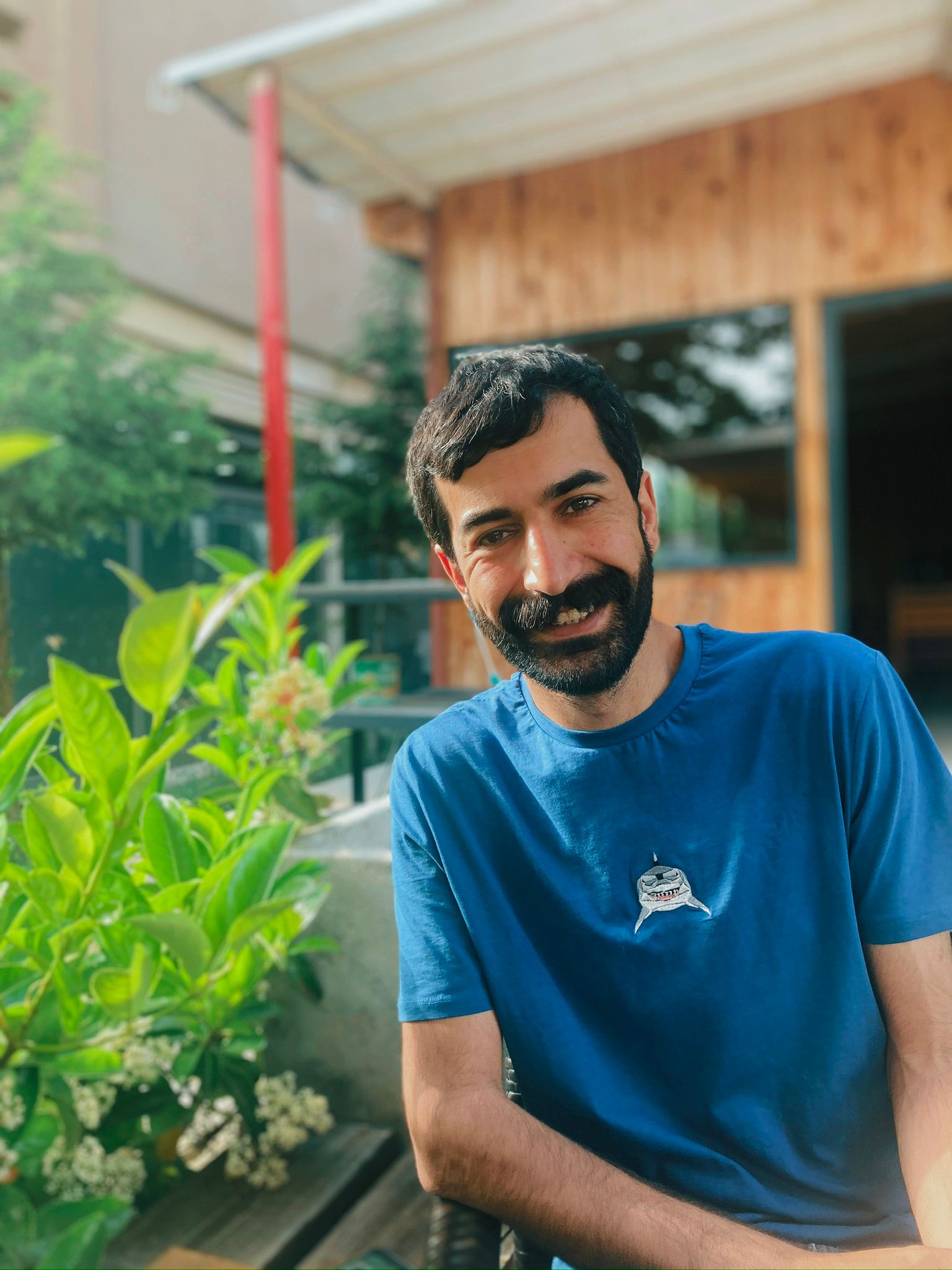
.jpg)
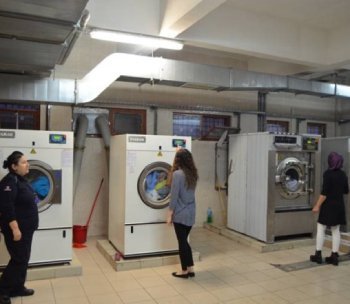
.jpg)
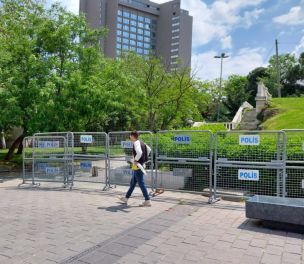
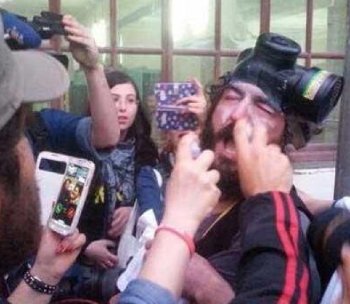
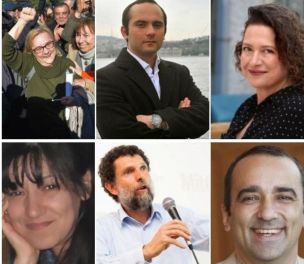
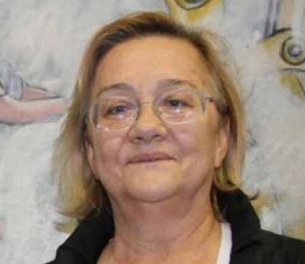
slcdaskl.jpg)
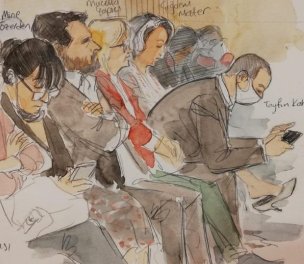
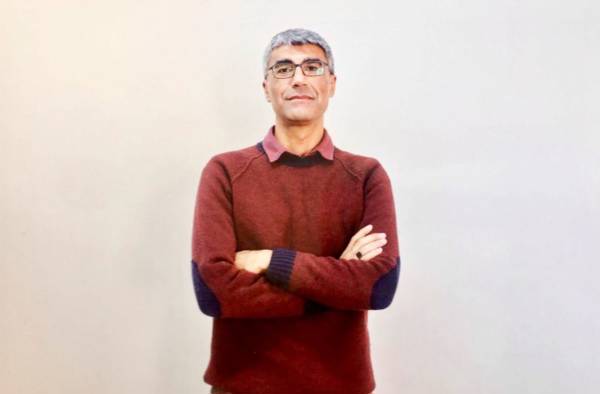
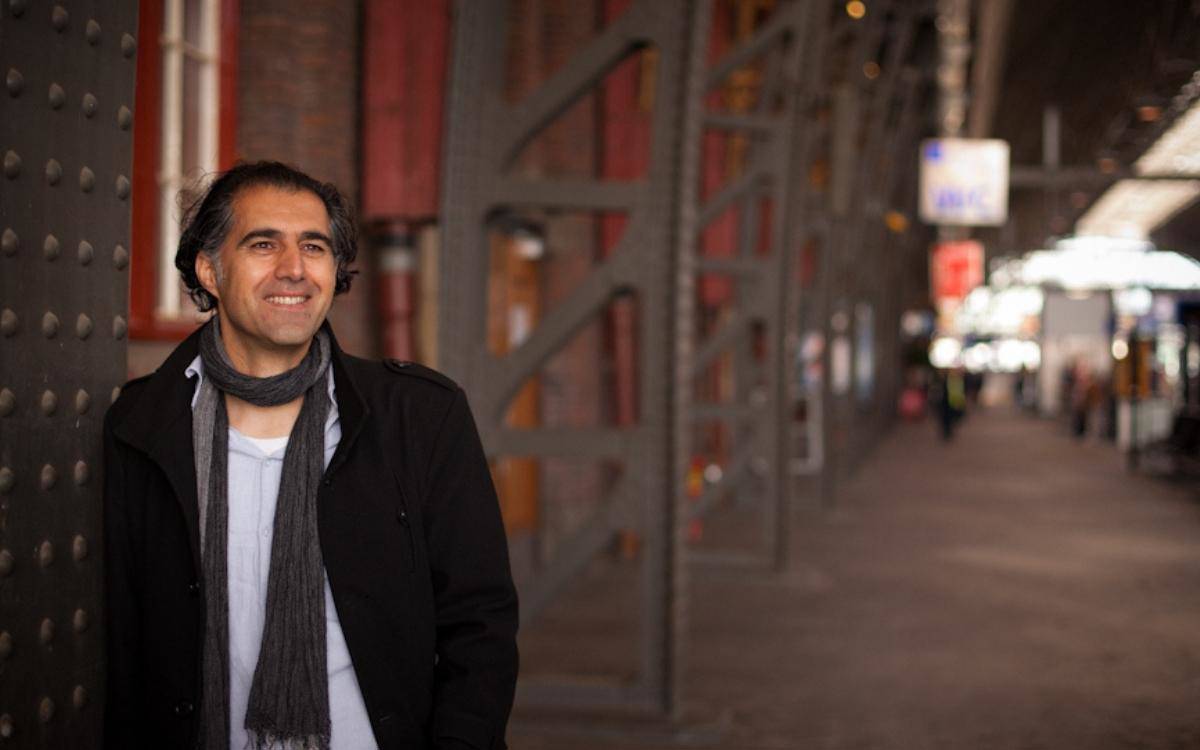
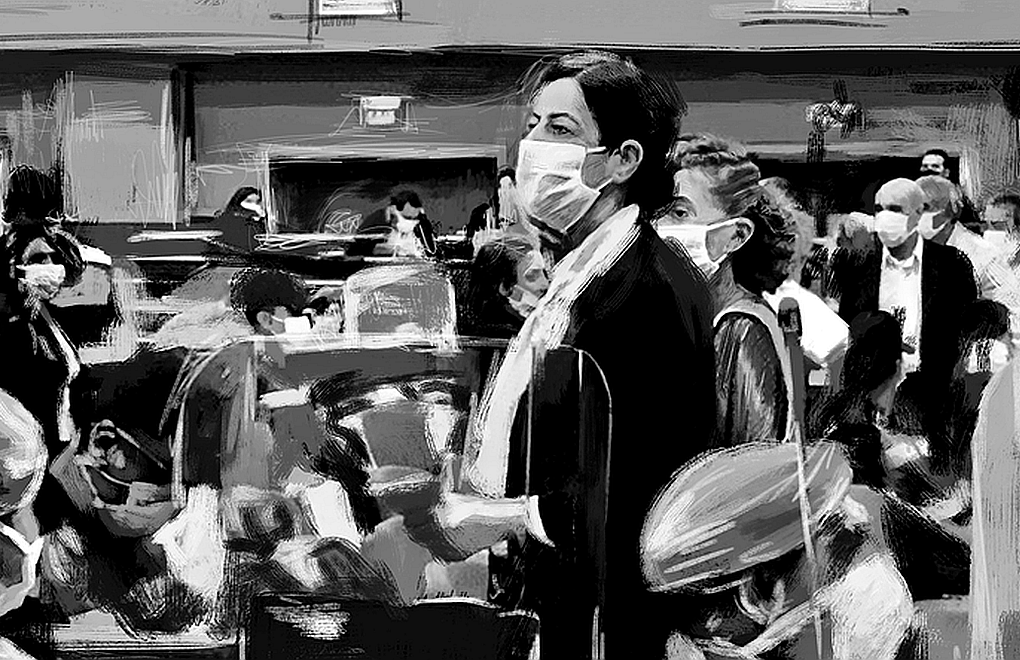
.jpg)
.jpg)